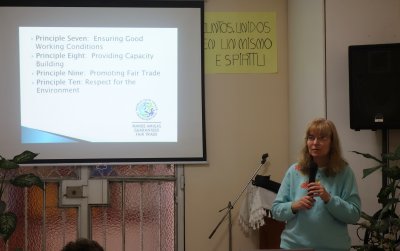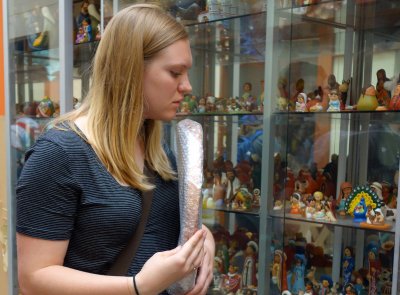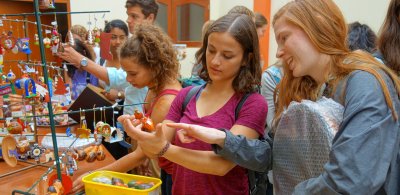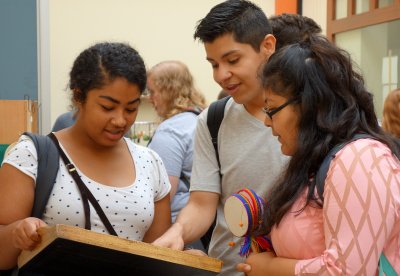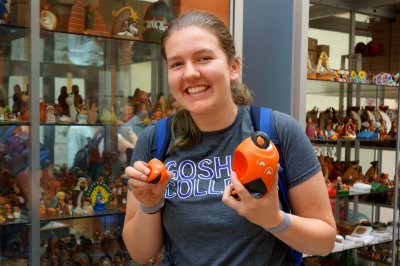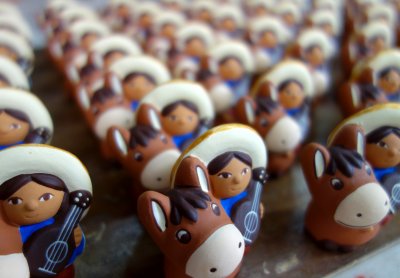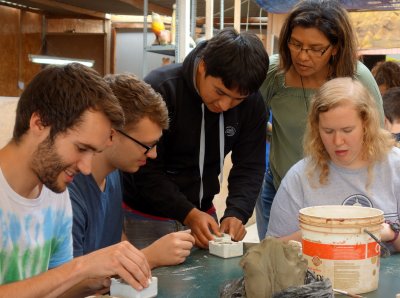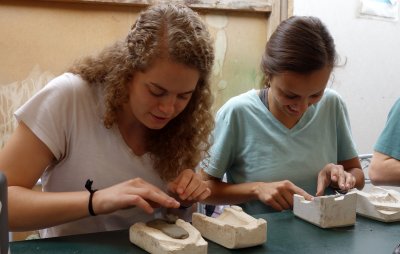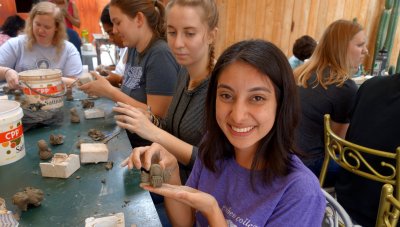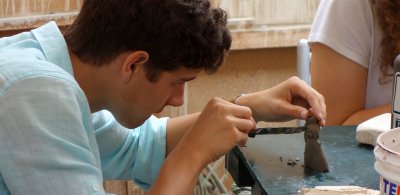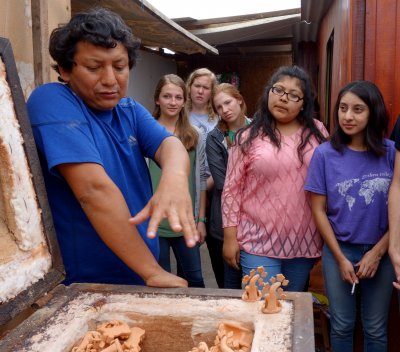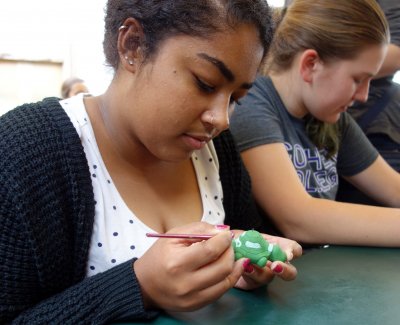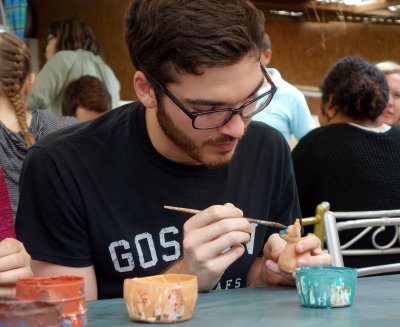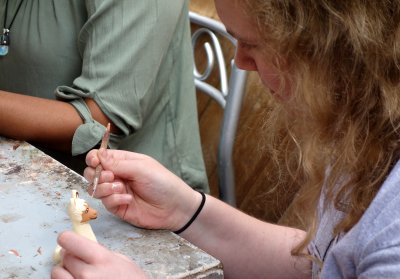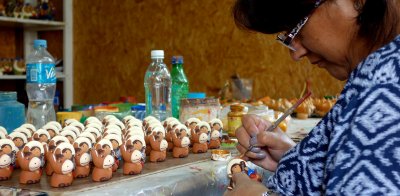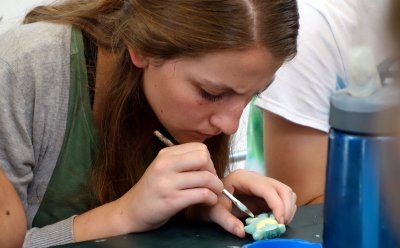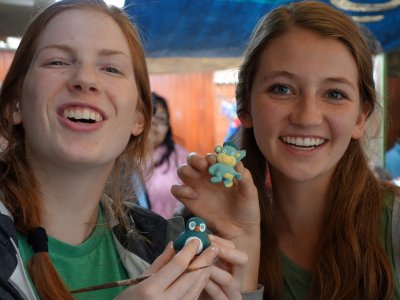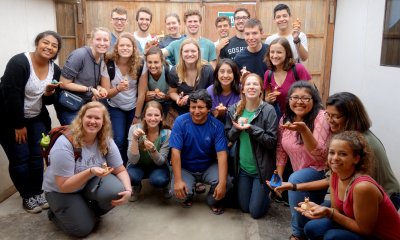Peruvian Ceramics and Fair Trade
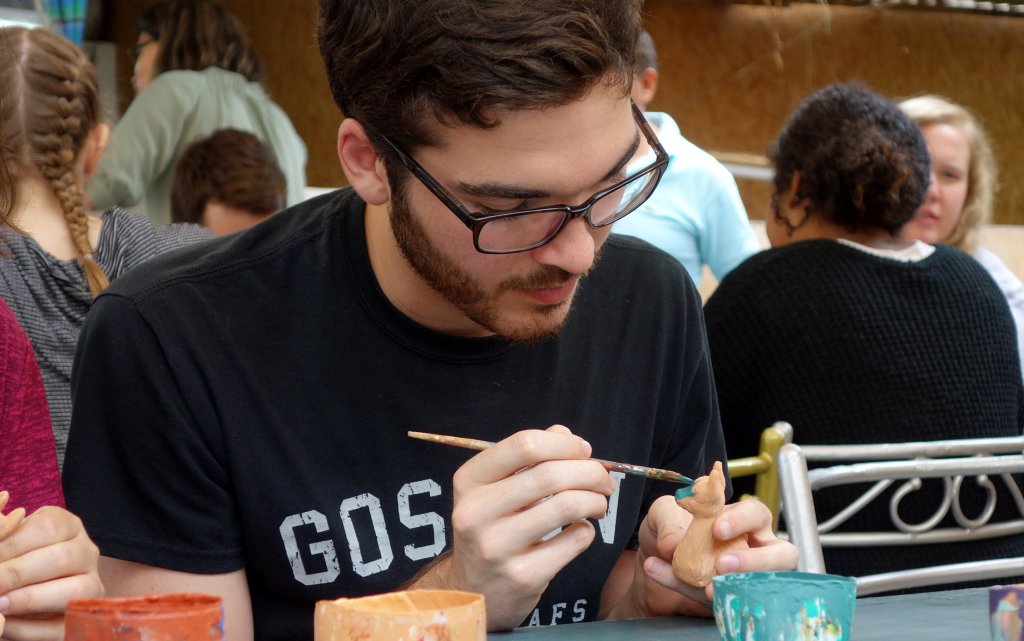
Wednesday, May 17
We have all seen stores like Ten Thousand Villages that sell artisan crafts from abroad, but this week students learned what it means to buy those handicrafts via fair trade principles, meet some of the artists that make the crafts, and try their hand at being artisans.
The organization Manos Amigas (Friendly Hands) distributes the products of Peruvian artisans in foreign markets. Their largest customer is Ten Thousand Villages. In a presentation they explained that they are certified by the World Free Trade Organization, which means they comply with 10 principles in their day-to-day work to improve the lives of Peruvian artisans and their families. The 10 principles are:
- Creating Opportunities for Economically Disadvantaged Producers
- Transparency and Accountability
- Fair Trading Practices
- Payment of a Fair Price
- Ensuring no Child Labor and Forced Labor
- Commitment to Non Discrimination, Gender Equity and Women’s Economic Empowerment and Freedom of Association
- Ensuring Good Working Conditions
- Providing Capacity Building
- Promoting Fair Trade
- Respect for the Environment
While they work with a variety of artisans from a variety of locations in Peru, we visited one work studio in a low-income neighborhood of Lima. Twenty-seven years ago the studio’s founder had to flee his village in the Andean Highlands during a conflict between Maoist insurgents and the military. [Later this semester the students will learn about the conflict during that period.] He brought his artisan trade to Lima, invited others from his village to come, and has since built a thriving business for many workers.
After viewing the different stages of the studio’s work, the tables were turned and our students were artisans for a few hours.
